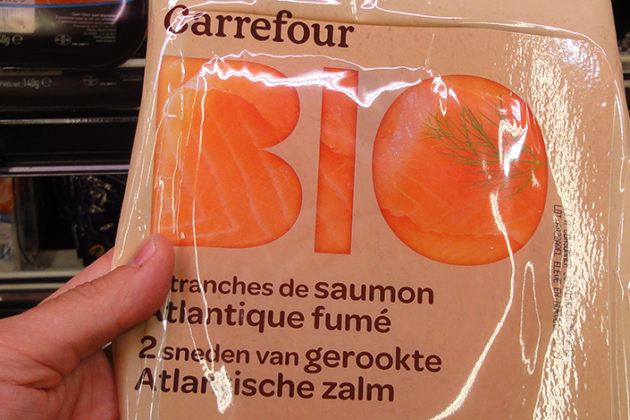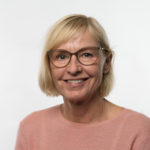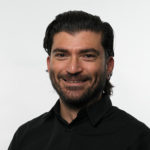Is organic the same as natural?

A consumer survey in France, Germany, Great Britain and Italy shows that most people don’t know what is meant by “organic fish”.
What do consumers really know about organic fish?
As a part of the OrAqua EU project, a survey of consumers’ perceptions and understanding of organic aquaculture has been conducted. 500 respondents from each of the largest markets for organic seafood in Europe – France, Germany, Great Britain and Italy – have provided their answers via an online questionnaire.
Work on the consumer survey was headed by Nofima, where Themis Altintzoglou and Pirjo Honkanen played key roles.
“Organic aquaculture is nothing new, but has only relatively recently been subject to specific regulation at the EU level. When we reveal the consumers’ ideas of organic fish, we can see that they’re not in line with the regulations,” Pirjo Honkanen says.

For several years Pirjo Honkanen has studied the consumers’ attitudes toward genetically modified, organic and sustainable food, and in particular seafood. Currently focus is on decisive factors within the consumption of sustainable, environmentally friendly and ethical food.
Themis Altintzoglou has studied how people decide which food products they buy and eat, and thus how to communicate with the consumers with and about food.
Natural, organic, or both?
What is organic, really? To many, “naturalness” is the most important definition of organic. But in practical production, it’s a completely different story.
“The definition of organic fish farming is in many ways derived from similar production in agriculture. It’s about maintaining full control of production, no medication or pesticides, and strict regulation of production conditions and water quality,” Honkanen says.
It’s about the process – but the organic fish will still be in a pen, and can’t swim freely like “natural” wild fish can.
“Perceptions are simply not in line with the regulations,” Altintzoglou and Honkanen conclude.
Many consumers believe wild fish are organic because they are perceived to have natural living conditions, which consumers believe is one of the key factors in the definition of organic fish.
What is Euro Leaf?

The consumers in the surveys state that they eat organic grain once to twice a month, organic vegetables two to four times a month, and organic fish one to three times a month. The consumption of organic seafood has the highest frequency in Italy, and the lowest in Germany. It also emerges that Great Britain and Germany have the largest numbers of consumers who never eat organic seafood.
One of the most important discoveries in the survey is that consumers are very unsure of what organic fish is.
“There are very few who are aware of the official EU organic label, “Euro Leaf”. The label was launched to make it easier for consumers to find organic products, but few are aware of what the symbol signifies,” Honkanen says.
Small organic share
All in all, organic fish constitutes a very small share of overall fish consumption. Limited availability is probably one reason, but there may be others.
In Norway there are currently few producers of organic salmon. Production costs are higher, and even though one achieves a better price for the product, the varied and complex regulations have discouraged investment in this route.
Organic aquaculture makes up a very small share of all fish farming. And there are also very little statistics on production, the Nofima researchers say. Only 20,000 tons of Europe’s combined salmon production of 1.4 million tons is organic. This makes up 1.4%.
Recommendations for EU regulation
The network project spans over three years, and ends at the end of 2016. The project is a response to the EU’s request for recommendations for the regulation of organic fish farming. Extensive literature reviews and data from the survey form the basis for a report on production systems, feed, environment and welfare. The results from the whole project are discussed once yearly with stakeholders to verify that the research is relevant.
“The final meeting will be next summer, and then we will compile the recommendations to the European regulations for organic aquaculture,” Honkanen says.
“The overriding objective of the project has been to review scientific literature related to organic aquaculture in order to provide good recommendations to the EU. Perceptions among consumers differ greatly from the rules, and one needs to work on how one communicates with consumers,” Altintzoglou says.
This includes ensuring that the Euro Leaf logo – which is a European minimum requirement toward approved organically produced food – is more clearlycommunicated to the consumers. The label is mandatory for products marketed as organic in the EU. In addition, there are already numerous national, private organic labels on the market. In the EU there are 19 private standards, whereof six in Germany.
“Awareness of the national, private organic brands is significantly higher in all countries, which indicates that the EU logo should be used in combination with the national logos if one wants to attract the consumers’ interest, at least in a transitional phase,” the Nofima researchers say.
For producers the current situation is that they often have to have several certifications for their salmon, and that they must take into account different requirements in different countries. In addition to the different certifications having different requirements, there is an obvious cost factor to take into consideration.
The facts: The consumers’ attitudes toward organic fish
- Those who hold certain opinions on conventional aquaculture have a tendency to have the same opinions of organic aquaculture.
- All countries in the survey believed that natural living conditions and the absence of harmful chemicals were the two key factors that define “organic”.
- Good water quality and the absence of medication and hormones were also high on the list among all.
- Germany differed from the other countries by having greater focus on fish welfare on average. These consumers were more concerned with a humane slaughter process than consumers in Great Britain, Italy and France.
- Consumers have little knowledge of the production of fish in general, which makes them more receptive to negative media stories on feed, fish density and environmental impact.
- Organic fish farmers have as high a score as independent certification companies in terms of consumer confidence. Although confidence isn’t initially very high, this separates organic aquaculture from the experience in other food production, where producers have lower confidence among consumers due to various negative incidents.
- The consumers’ lack of knowledge on aquaculture in general and organic aquaculture in particular, indicates that one should focus on impartial and factual communication to consumers where one emphasizes the utility value to the consumer and the environment.
- To develop the market further, one also needs to develop and test a broader selection of products in the shops.
OrAqua facts:
- European Organic Aquaculture- Science-based recommendations for further development of the EU regulatory framework (OrAqua) started up on 1 January 2014. The project has partners from eight different countries, including research and industry partners.
- Nofima scientist Åsa Espmark coordinates the project.
- The work will culminate in a recommendation for improvement of the EU regulations for organic aquaculture. Work is based on a scientific review of literature on production and socio-economic issues, as well as the collection of consumer data.
- The project must take a broad range of stakeholders into consideration. Three meetings of stakeholders with around 80 participants were scheduled, whereof two have been held: the first in Istanbul in November 2014, the second in Rotterdam in October 2015. The final meeting will be held next summer.
- As a part of the OrAqua EU project, researchers at Nofima have investigated what consumers in four European countries associate with organic fish.
- Other participating institutions:
- COISPA Technologia & Ricerca Scarl (Italy)
- The Technical University of Denmark (DTU, Denmark)
- Institut Francais de recherché pour l’exploitation de la mer (IFREMER, France)
- Jihoceska Uverzita v Ceskych Budejovicich (USB, Czech Republic)
- Sveriges lantbruksuniversitet (SLU, Sweden)
- Stichting Dienst Landbouwkundig Onderzoek (DLO, the Netherlands)
- Debio Association (Norway)
- Instituto per la Certificazione Etica ed Ambientale (ICEA, Italy)
- Aarhus University (ICROFS, Denmark)
- Fédération Européenne des Producteurs Aquacoles (FEAP, France)
- Instituto Zooprofilattico sperimentale Delle Venezie (IZSVe, Italy)
- Culamrex Sa (Spain)
- For more information on OrAqua, see oraqua.eu, and Nofima’s project page from the link below.

